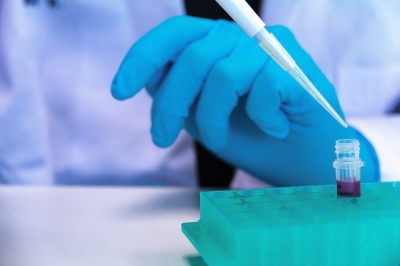The degree program is aimed at students interested in learning about the molecular mechanisms involved in the functioning of cells, tissues and organisms, studying their alterations in pathological situations and applying that knowledge in the production of goods and services directed to the maintenance of health.
Study path

The first part of the course provides students with an adequate knowledge of the basic scientific principles such as chemistry, physics and mathematics necessary to interpret and understand biological systems on a molecular, cellular and sub-cellular level, as well as to analyse them through statistical tools. The course also provides a good knowledge of specific disciplines, yet common the different fields of biotechnology, such as biochemistry, cell and molecular biology, genetics, microbiology. At this stage, a key role is played by the study of the basics of the English language and computer systems and key software applications, knowledge that will be later needed in all future subjects.
The second part of the course features more applicative subjects, aiming to the acquisition of an adequate knowledge of the morphology, physiology and pathology of living systems, pharmacology and toxicology, applications of biotechnology in research and diagnostic laboratory and bioinformatics. Particular attention is given to the understanding of the scientific principles that form the basis of the multidisciplinary techniques used in Biotechnology in the field of human and animal health.
The course is complemented by some contributions differentiated on the basis of the curriculum chosen by the student and optional courses, chosen according to his personal inclinations. The study plan includes four curricula:
- the Medical Curriculum is centered on applications of biotechnology in human pathophysiology, diagnostics laboratory, in the development of treatments. In addition to the provisions of the study plan;
- the Pharmaceutical Curriculum deals with issues relating the development and production of drugs. In addition to the provisions of the study plan;
- the Alimentary Curriculum studies methods for the selection of foods and for the study of their effects on humans and animals. In addition to the provisions of the study plan;
- the Veterinary Curriculum explores issues in the field of veterinary medicine biotechnology In addition to the provisions of the study plan.

Skills to be acquired
During the course students learn to use laboratory techniques in the field of chemistry and organic chemistry, techniques of manipulation of DNA, the recombinant DNA technology, the main biochemical, microbiological and bio-molecular and cellular techniques, as well as methods of statistical analysis.
Particular attention is devoted to computational tools, both within the computer course in other courses, and for the acquisition of the ability to perform literature searches of scientific texts and to analyse and use the growing information present in biological and biomolecular databases available today, working above all in English. Practical knowledge, critical to the course of study, will be developed within both of the courses and in periods of internship with suitable structures, which facilitate the insertion into the working world. Finally, the graduate will be provided an overview of economic and management issues and possible employment opportunities of biotechnology applied to human and animal health.
